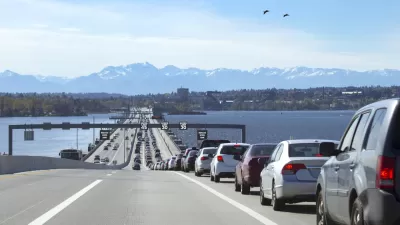The eight-cents-per-gallon gas tax increase is one of several measures in the Democrat governor's first budget that marks a major departure from the the tenure of former Republican Gov. Scott Walker.

Eight cents a gallon is a far cry from what defeated incumbent Gov. Scott Walker warned voters during the campaign Evers would do if elected: hike the gas tax by "up to a $1 a gallon."
The current 32.9-cents per gallon total state gas tax has been unchanged since 2006, when the legislature abolished the practice of automatically adjusting its gas tax for inflation. Walker, as late as January 2015, had supported hiking the gas tax and user fees, but dropped the pay-as-you-go approach in favor of bond financing as he was emerging as a candidate for the Republican presidential primary in 2016.
"Evers' $83.4 billion, two-year spending plan would also index the gas tax to allow for automatic increases in the future, legalize medical marijuana, restore government funding to Planned Parenthood and take power away from state legislators to draw their own district lines," report Shawn Johnson and Laurel White for Wisconsin Public Radio on Feb. 28.
Johnson reported in 2017 how automatically adjusting the gas tax for inflation went from a bipartisan idea in 1985 to bipartisan unraveling in 2006 when then-Democratic Gov. Jim Doyle signed Republican legislation that would cause the state's chronic transportation funding crisis.
Gov. Evers' office "said it would offset the gas tax increase by eliminating Wisconsin's minimum markup law for gasoline purchases," add Johnson and White.
Also known as the Unfair Sales Act, the law prevents big retailers from selling gasoline below cost.
Evers would also increase a registration fee for heavy trucks by 27 percent.
The increase in the two user fees sets up a potential conflict with the Republican-controlled legislature that prefers to toll federal highways, notwithstanding the fact that it is a timely process that requires applying to the U.S. Department of Transportation for a waiver from the tolling prohibition.
"All told, the Evers administration said changes would increase transportation funding by more than $600 million over the two-year budget," add Johnson and White. In addition to reducing the level of borrowing for transportation spending, the new revenues would go towards:
- Finishing construction on Milwaukee's Zoo Interchange project, which was put on hold in Walker's last budget.
- Pay for the expansion of Interstate 43 from two lanes to three in Milwaukee and Ozaukee counties.
The reporters note that legislators haven't taken a vote to increase the gas tax in more than two decades.
- Wisconsin Republicans Unite to Support Road Tolling Over Gas Tax Hike, February 11, 2019
- Gas Tax Politics at Play in Wisconsin Gubernatorial Race, October 15, 2018
-
The Vital Role of Gas Tax Indexing, July 18, 2017
Hat tip to IBTTA Smart Brief.
FULL STORY: Gov. Tony Evers Calls For Gas Tax Increase In First Budget

Planetizen Federal Action Tracker
A weekly monitor of how Trump’s orders and actions are impacting planners and planning in America.

Maui's Vacation Rental Debate Turns Ugly
Verbal attacks, misinformation campaigns and fistfights plague a high-stakes debate to convert thousands of vacation rentals into long-term housing.

San Francisco Suspends Traffic Calming Amidst Record Deaths
Citing “a challenging fiscal landscape,” the city will cease the program on the heels of 42 traffic deaths, including 24 pedestrians.

Amtrak Rolls Out New Orleans to Alabama “Mardi Gras” Train
The new service will operate morning and evening departures between Mobile and New Orleans.

The Subversive Car-Free Guide to Trump's Great American Road Trip
Car-free ways to access Chicagoland’s best tourist attractions.

San Antonio and Austin are Fusing Into one Massive Megaregion
The region spanning the two central Texas cities is growing fast, posing challenges for local infrastructure and water supplies.
Urban Design for Planners 1: Software Tools
This six-course series explores essential urban design concepts using open source software and equips planners with the tools they need to participate fully in the urban design process.
Planning for Universal Design
Learn the tools for implementing Universal Design in planning regulations.
Heyer Gruel & Associates PA
JM Goldson LLC
Custer County Colorado
City of Camden Redevelopment Agency
City of Astoria
Transportation Research & Education Center (TREC) at Portland State University
Jefferson Parish Government
Camden Redevelopment Agency
City of Claremont





























